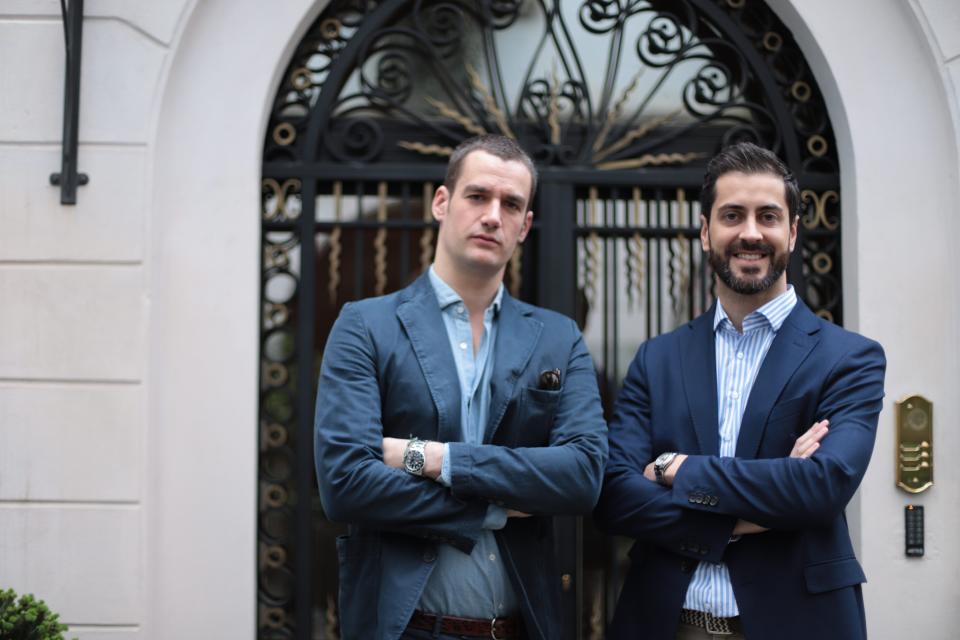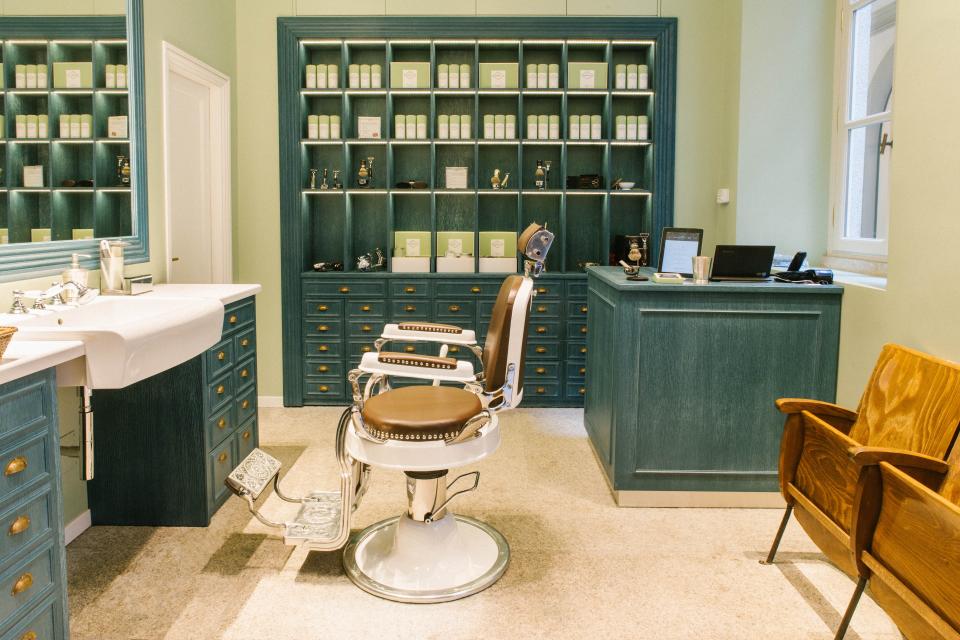Italian Company Barberino’s Has ‘Peaky Blinders’ Fans Covered
- Oops!Something went wrong.Please try again later.

MILAN — Those who are familiar with the Shelby name know that the charismatic family at the center of the “Peaky Blinders” period crime TV series exudes ruthlessness and style in equal doses. But the gripping story lines and dapper looks contributed to the popularity of the show just as much as the iconic haircuts, which have inspired a generation of men to opt for short crops with shaved sides since the series premiered in 2013.
Italian men’s beauty player Barberino’s is looking to bank on this resonance in the lead-up to the show’s sixth and final season to be aired this year. After inking a partnership with Banijay Brands — part of the Banijay Rights company distributing the show — Barberino’s released a capsule collection of men’s grooming essentials themed after the series.
More from WWD
Products include a cologne, a shaving kit honoring the protagonist Thomas Shelby, played by actor Cillian Murphy and one for beards’ grooming inspired by Alfie Solomons, the character interpreted by Tom Hardy. Priced between 55 euros and 65 euros, the kits also include vouchers for treatments and are available to purchase both at the firm’s barbershops and e-commerce.
While formulations are the same used in the Barberino’s offer — which counts more than 50 products across cosmetics and accessories — packaging and scents have been tweaked to evoke the show.

Courtesy of Barberino's
Barberino’s also revised the interior design of one of its seven barbershops in Milan to match the 1920s Birmingham atmosphere of the series, in a move that proved to be successful as traffic at the unit significantly increased. Hence, the set-up is confirmed till end of 2022 and will be replicated in other Barberino’s outposts in Milan and Rome.
“We’re looking to build on this strategy with other partnerships that have nothing to do with the world of beauty, as our goal is to offer a wider storytelling,” said Michele Callegari, who founded Barberino’s with Niccolò Bencini in 2015.
“I believe this is the best way to approach the market: limited-edition offerings and more frequent partnerships, which enable us to be more flexible and innovate constantly our brand without distorting its identity,” added Callegari, who aspires to a Warner Bros. tie-up for the Avengers franchise.
Meanwhile, Barberino’s continues to focus on its expansion as well as build on marketing activities such as taking part in in-store events hosted by the likes of Larusmiani or the Rocca jewelry retailer for their top clients.
In addition to these implementations and customers’ word of mouth, the company is scaling up its business in Italy thanks to its modern, managerial approach to a profession that is traditionally family run in the country, or “stuck in the Stone Age,” as Callegari put it.
“We’re trying to change the paradigm. Usually the barber here is seen as the artist, everything is about him. We’re putting the focus on guests and their needs instead,” said the cofounder, also mentioning how offering cashless payments, extended opening hours and staff training are basic assets that many smaller barbershops in Italy are lacking.

Courtesy of Barberino's
“To be honest, I don’t see barbershops as our competitors. We compete with spas and those places our clients indulge and like to spend their time at. Time is the key factor here. We want to promote the idea of investing time into one’s wellness and not coming to us just led by a necessity,” Callegari said. “The pandemic reinforced our vision — even if it forwent the capital increase we had planned,” he added with a smile.
The company had a million-euro fund raise slated for 2020, which eventually resulted in investors’ withdrawal of 600,000 euros as soon as COVID-19 spread. Four months later, an equity crowdfunding enabled the company to even the losses and raise 1.25 million euros.
Last year, Barberino’s also won the first prize at the B Heroes acceleration and mentorship program for Italian start-ups, getting an investment of 300,000 euros, which was followed by a capital increase of 600,000 euros.
While the pandemic dented its performance in 2020, Barberino’s doubled its revenues to roughly 2 million euros last year, with online sales accounting for 10 percent out of total revenues.

Courtesy of Barberino's
Haircuts accounted for 70 percent out of total services performed in-store, while shaving and other beauty treatments — including facials and manicures — comprised the rest.
“In the past, wellness for a man usually equaled going to the gym or jogging, it was never linked to beauty. Let’s say that David Beckham changed this image and paved the way to the concept of men’s grooming. And we’re talking about 20 years ago, so this is relatively a new market with an incredible potential,” Bencini noted.
Barberino’s shared data compiled by Euromonitor and a Cross Border Growth Capital research, which showed that the men’s grooming industry is expected to generate $51.26 billion by 2025, growing at a 5.1 percent CAGR.
According to the study, last year Europe represented 31 percent of global sales, generating 12.8 billion euros. The most-performing markets in the continent were Germany and the U.K., where men’s grooming sales accounted for 2.6 billion euros and the 1.98 billion euros, respectively. Yet Italy offers margins of growth, with a projected 4 percent CAGR for the 2020-25 period.
In the domestic market, Barberino’s counts 12 doors and aims to reach 20 units in the next six months, before starting to tackle key markets such as Germany, France and the U.K. The format attracts a mixed audience, ranging from white collars to students and tourists. For this reason, the firm scouts locations in key cities and near to big companies, universities or strategic residential areas.
“But we want to understand what we’re doing wrong. We question ourselves a lot about this, because we want to move with another speed. But to do that, people need to change their pace, too. We need to start tackling this from the cultural perspective,” Callegari said.
“Take face masks. They are potentially the perfect products for a man: easy to apply and you’re done in five minutes, but to convince men of their efficiency is the most difficult part here. We still need to work on the awareness factor,” echoed Bencini.
To wit, masks are the brand’s only product made in South Korea instead of Italy. Barberino’s entered this market last year opening its first barbershop abroad and in franchise at The Hyundai Seoul mall. The founders said the goal is to leverage this unit to boost the format’s presence in the Southeast Asian area, which is highly responsive to men’s grooming trends.

Courtesy of Barberino's
Sign up for WWD's Newsletter. For the latest news, follow us on Twitter, Facebook, and Instagram.

